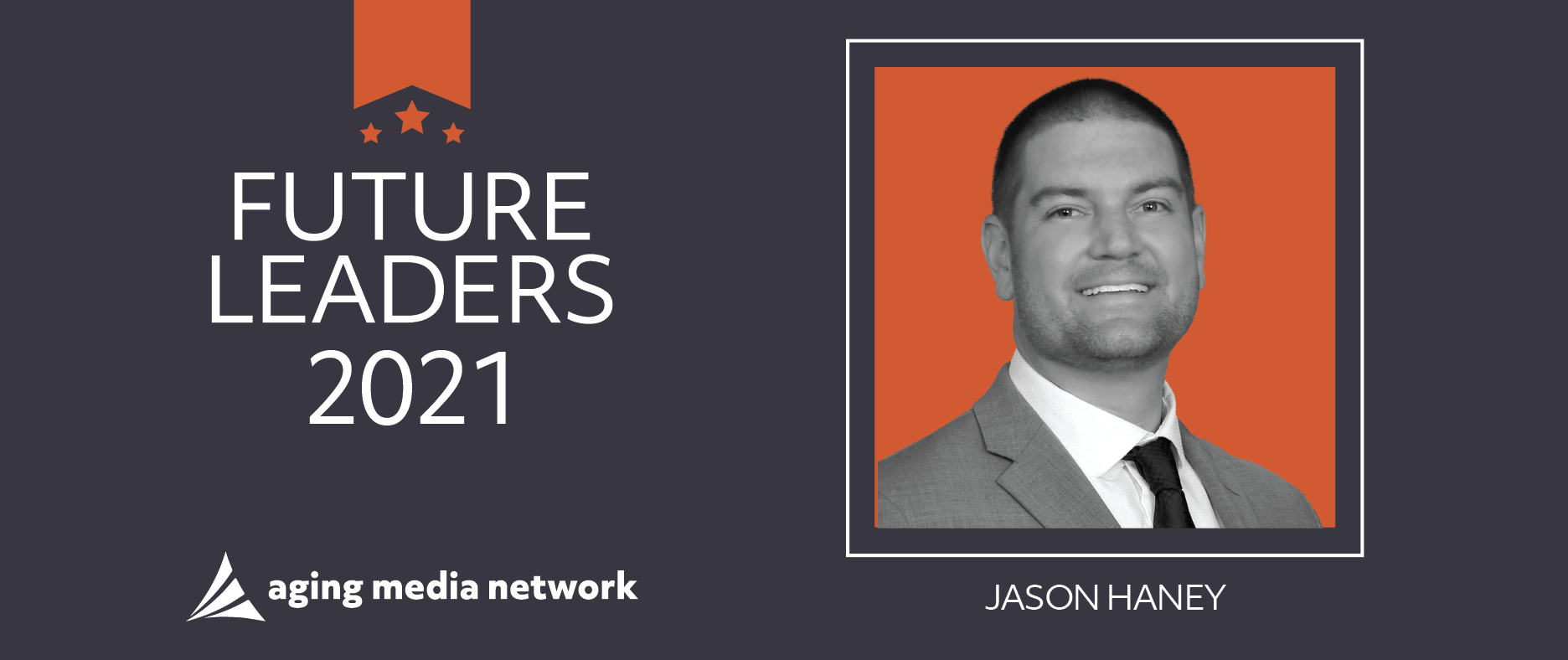The Future Leaders Awards program is brought to you in partnership with PointClickCare. The program is designed to recognize up-and-coming industry members who are shaping the next decade of senior housing, skilled nursing, home health and hospice care. To see this year’s future leaders, visit https://futureleaders.agingmedia.com/.
Jason Haney, Vice President of Operations at American Health Plans, has been named a 2021 Future Leader by Skilled Nursing News.
To become a Future Leader, an individual is nominated by their peers. The candidate must be a high-performing employee who is 40-years-old or younger, a passionate worker who knows how to put vision into action and an advocate for seniors.
Haney spoke with Skilled Nursing News to talk about his career trajectory and the ways the industry is evolving due to market and regulatory forces and the COVID-19 pandemic.
SNN: What drew you to the industry?
Jason: I grew up in the industry. In the mid-90’s in rural southwest Missouri, there weren’t a lot of job opportunities, and as a high schooler, a friend of mine’s mother was the dietary manager at our local nursing home and she got me started. About 25 years ago, my start in the industry was washing dishes, and I’ve been in the gravitational pull of nursing homes ever since.
SNN: What is the biggest lesson you’ve learned since starting to work in the industry?
I think more recently, it’s been around partnerships and taking risks. Traditionally, at least for myself, when I was an operator in the nursing home space, you’d think about partnerships in terms of how to collaborate with [different referral sources]. That keeps you trapped in that fee-for-service referral-based pattern.
Partnerships are more important today when providers are working together and not thinking of each other as competitors [in order] to provide better outcomes for residents and be better employers or other staff.
Second to that, is taking risk. I mean that quite literally in terms of financial risk and how do you reposition yourself as a provider outside of that fee-for-service churn to think more longitudinally about your revenues and break out of that long history of long-term being in a reactionary position.
SNN: If you could change one thing with an eye towards the future of skilled nursing, what would it be?
This is going to be a broad answer but just the reimbursement environment itself and the trickle down problems of that from the staffing component.
I think there needs to be a national awareness of the hard work that happens in this industry and the frailty of the population as well as the diversity of the population that the industry serves.
The elevation of the long-term care employee needs to happen so there’s recognition that you need people to take care of residents in the homes and to do that the reimbursement model needs to change.
SNN: What do you foresee as being different about the industry moving ahead to 2022 and beyond?
I think that everything has been turned on its head in the last 18 months, but I think the industry is going to take stock of itself.
I think that’s where American Health Plans’ model fits into that. We represent an avenue for providers to band together and have a more unified voice to have a larger seat at the table in these conversations.
Hopefully, the industry will no longer be singled out, whether it’s a vaccination mandate or visitation policies, and you’ll see the industry treated more along the lines of the rest of the health care spectrum and not just singled out all the time.
SNN: In one word, how would you describe the future of skilled nursing?
Evolving. From when I started about 25 years ago, it is not the same industry. The care for different people, the avenues to partnership is different, the regulatory environment has changed a lot and I think it’s going to continue on that path.
I think providers who are willing to step outside of that reactionary position and think about how they can be in a spot with more control of their destiny.
SNN: What quality must all future leaders possess?
A willingness to learn. Whether it’s our industry, whether it’s a new concept, like a buyer on Medicare Advantage, or whether it’s the world at large, you have to be willing to hear from others and look at data in a new way.
You have to rethink your approach and I think that hunger and willingness to learn new things is crucial in a leader.




